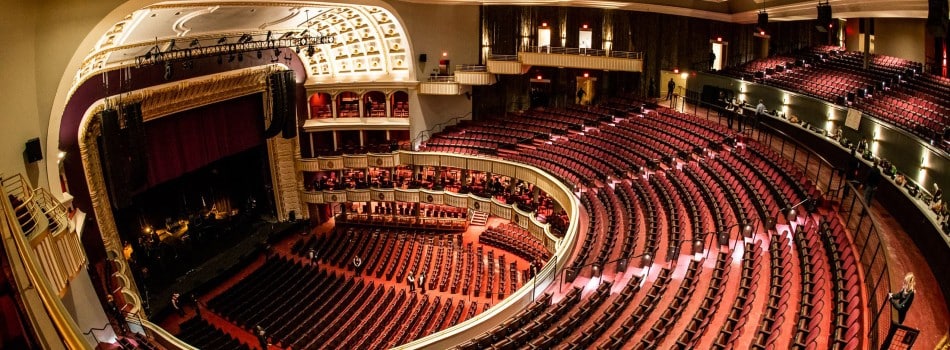Live Nation Entertainment was named in a lawsuit by its landlord at the Met Philadelphia for cheating the owner out of concert proceeds. Now, the concert promoter giant has fired back at the landlord in a legal filing, calling the suit a ploy to earn additional money.
According to the Philadelphia Inquirer, the promoter said in a legal filing that The Met owner Eric Blumenfeld was trying to earn “more under the lease than what he bargained for” through the lawsuit, which aimed to hold Live Nation accountable for broken promises. Live Nation attorney Paul Rosen, of the law firm Spector Gadon Rosen Vinci PC, said that “the entire complaint is an attempt to extort additional rent” and the developer was trying to “rewrite the lease [for the North Broad Street property to] receive enormous additional sums of money.”
The Metropolitan Opera House, first built in 1908, was purchased by Rev. Mark Hatcher in the mid-1990s. Hatcher teamed up with Blumenfeld to restore the then-deteriorating building, and the pair renovated The Met in 2013 into a $58 million concert hall. In 2017, Live Nation signed a lease adding The Met to its portfolio of Philadelphia-area venues, and as a part of its lease, the promoter agreed to pay $1.5 million in a “fixed minimum rent” per year, as well as $2 for each ticket sold.
Blumenfeld filed a lawsuit against Live Nation last year for violating the lease, noting that the promoter did not pay him additional funds for events like Madonna, Sting, Phish, and Little Big Town. In addition to its fixed minimum rent, Live Nation agreed to make the venue hall available for church use by 7 a.m. each Sunday and leave the space available for community events, if needed. In a letter included in the lawsuit, the Reverend noted that Live Nation failed to open the venue in time for church’s Sunday morning service at times and Live Nation staff members “created an environment of ‘bullying.'”
In its response, Live Nation said that Blumenfeld had not been owed extra for those events, since they were held under the promoter’s “right to license the premises for entertainment” and “entities other than Live Nation are not subject to … requirements relating to the payment … of percentage rent.” Although Blumenfeld accused Live Nation of violating its lease provision that granted him half of all revenue from corporate branding deals at the concert hall, Live Nation said Blumenfeld was owed sponsorship revenue from naming deals only “for the entity of the premises” under the lease.
Live Nation did not respond to the allegations regarding the Reverend in the suit, which Rosen said was deliberate since “we have nothing about the reverend to say that would ever be disparaging” and “he’s a considerable asset to Live Nation and its future.” He said that the church’s problems in the lawsuit were just “kinks that needed to be worked out.”



